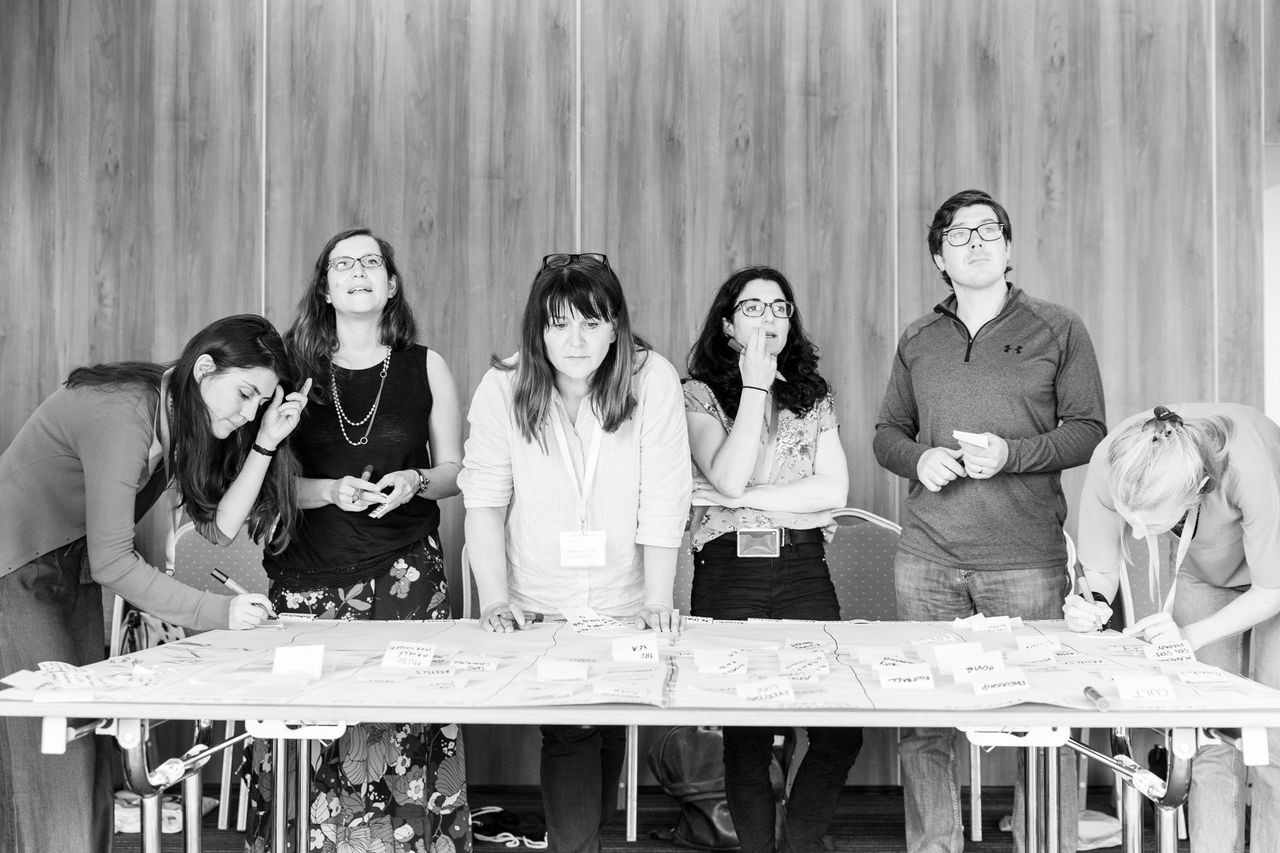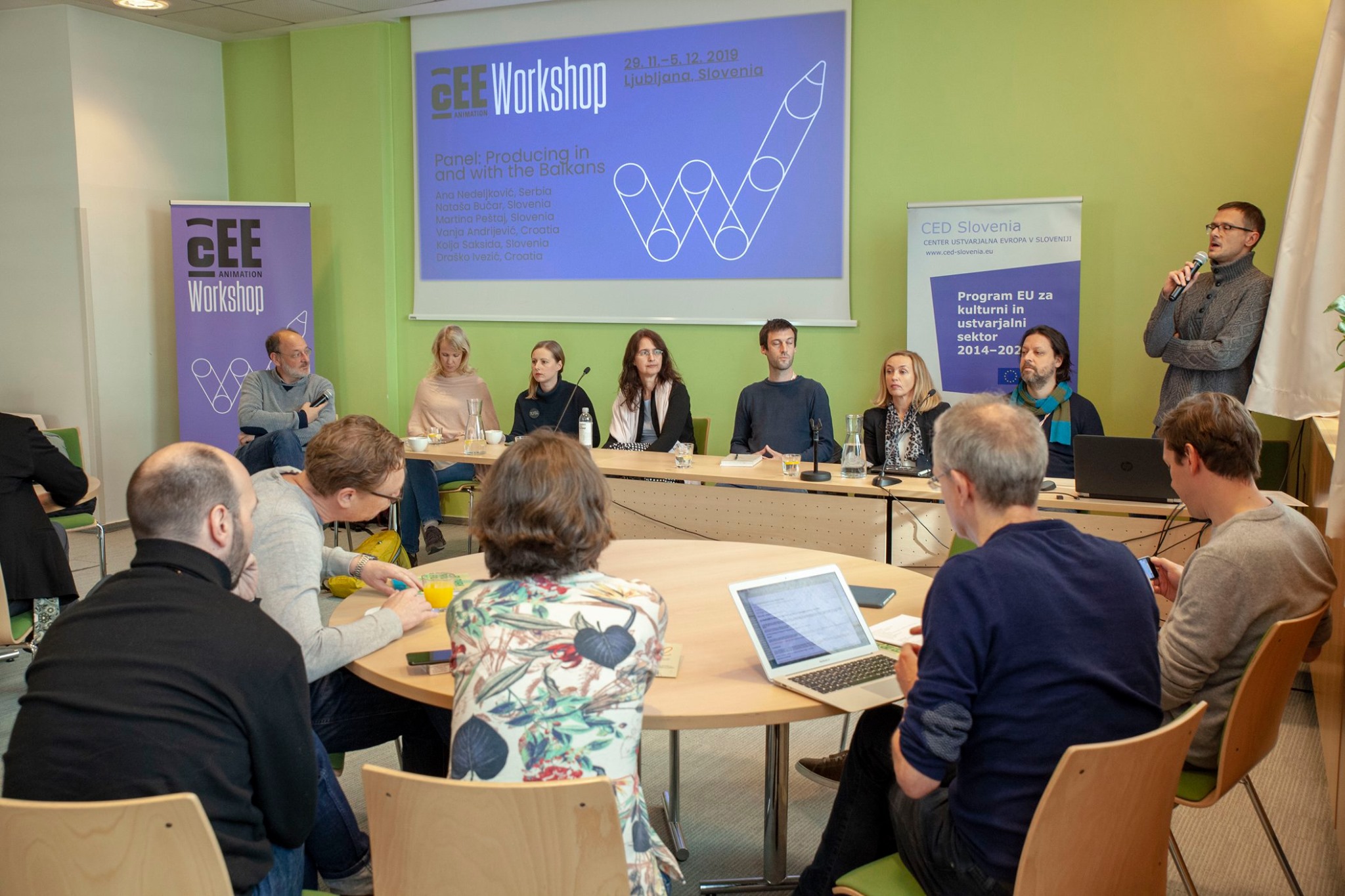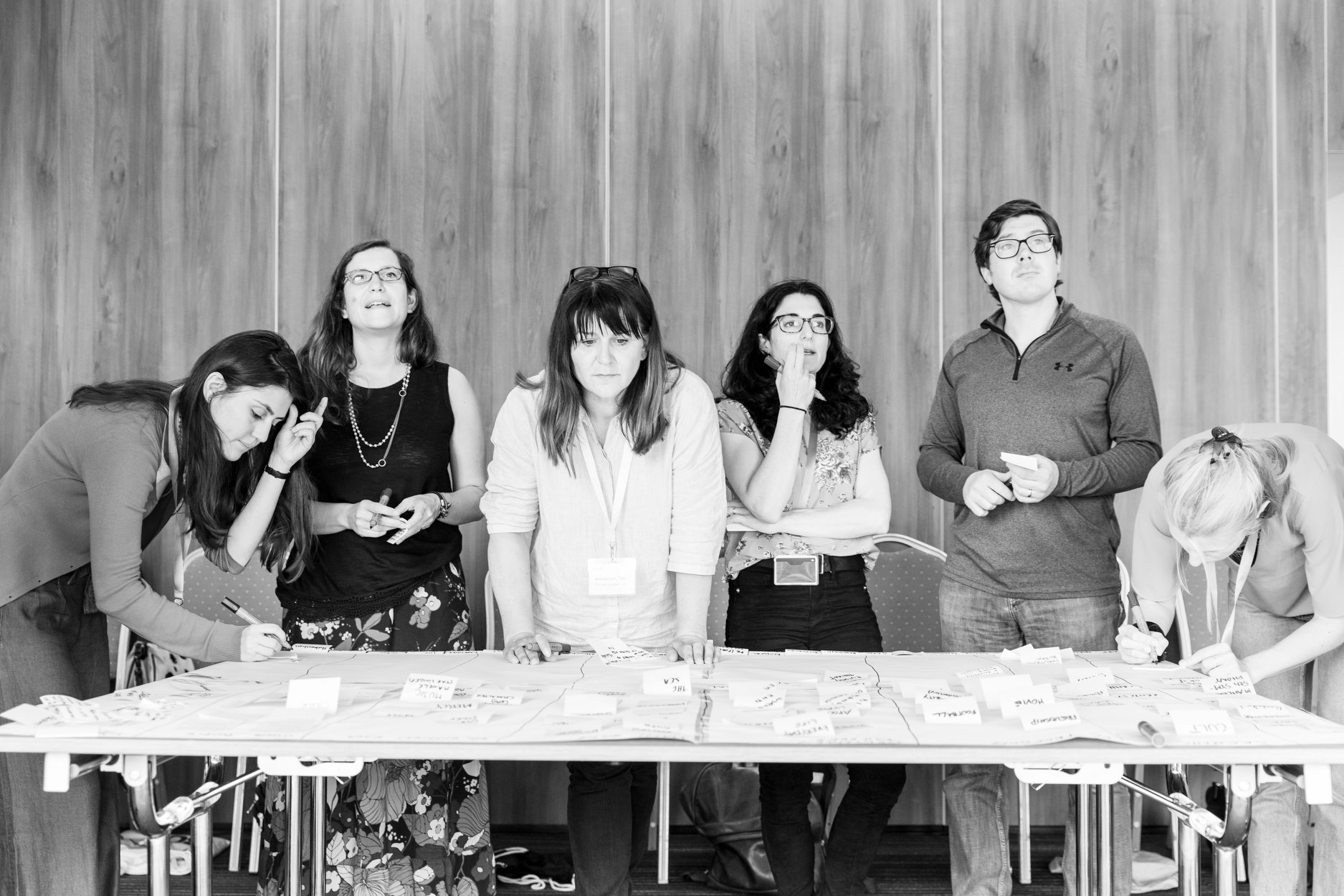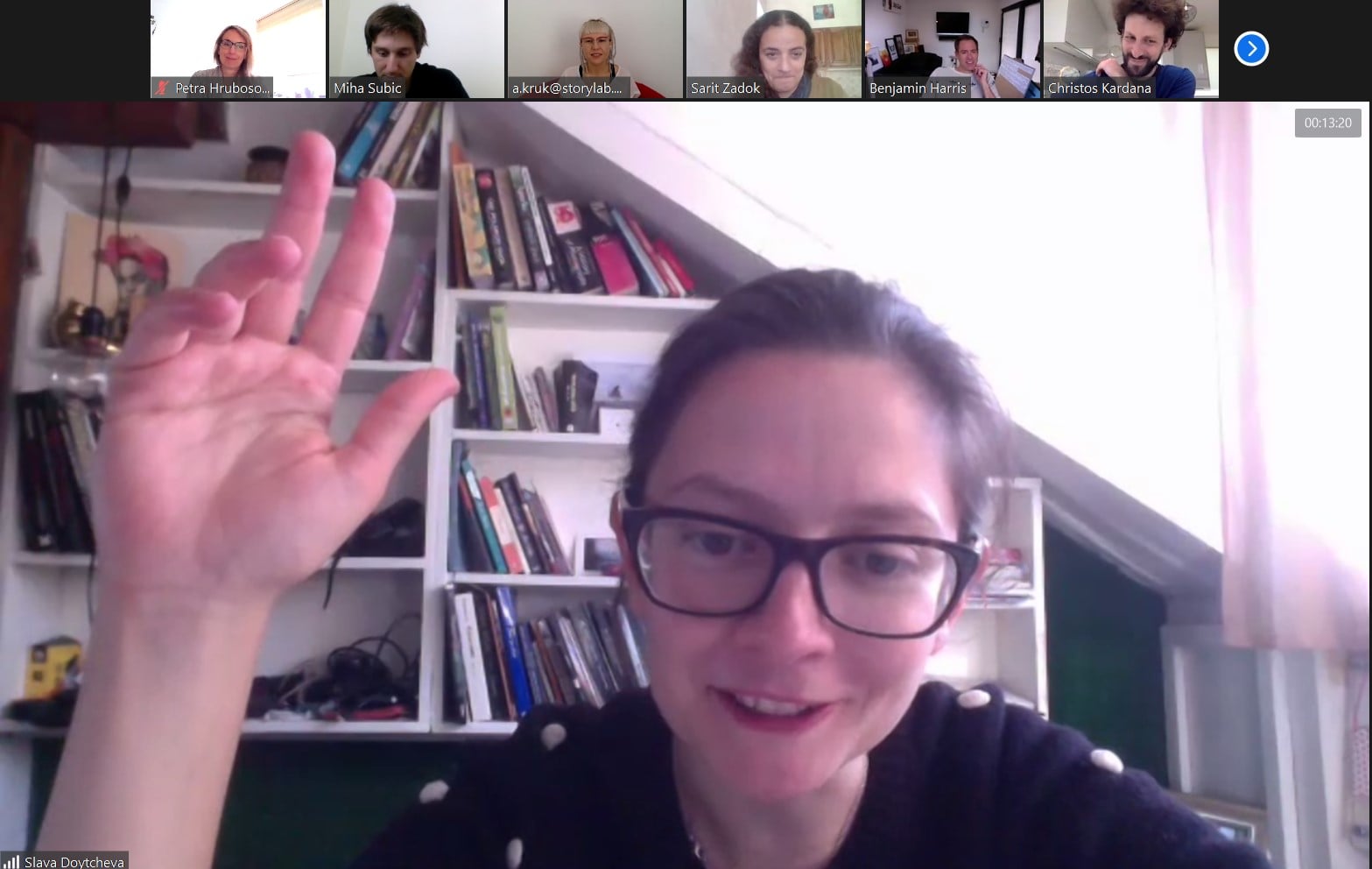Audiovisual Training and Networking
Putting Professional Mobility in Service of Creativity
Professional mobility boosts AV creativity
In the continuously changing global audiovisual (AV) landscape, talent, skills and creativity stand out as the most important assets AV professionals should nurture. What is the best way for one to develop such skills and seize opportunities throughout one's career?
The Creative Europe programme – the EU's only financial instrument aimed at the culture and creative sectors (CCS) – offers a range of options. In 2021, the MEDIA sub-programme celebrates its 30th anniversary of enabling the European film and AV sector to grow and thrive internationally. Improving skills of talented European AV professionals is one of the core objectives – and flagship achievements – of Creative Europe MEDIA. Through training and its intrinsic component, networking, we also see how professional mobility serves creativity.
Approximately 50 unique, highly valued and effective training programmes[1] take place yearly around Europe. Annually, they reach more than 2,000 AV professionals, including some 20 Slovenian creatives – producers, scriptwriters, directors, audience designers, festival organisers. For the new generation (2021–2027) of the Creative Europe programme, the European Commission has an even more ambitious plan of reaching 5,000 professionals a year. No doubt, the changes brought about by the global 2020 situation will influence this goal.
Enhancing cross-border AV collaboration through professional exchange
MEDIA-supported training events not only build creative, digital and business skills, they also help potential collaborators from different countries and backgrounds meet and join forces in creating content, characterised by a higher potential to reach audiences across borders.
Training programmes vary by target group, format, cost and length. All provide the necessary skills and contacts for enhancing co-production and collaboration among the European AV players. Programmes cover diverse topics and address a range of sector needs; from content (script) development and production to marketing, from legal aspects to company management and new business models. Digital skills – essential to ensure adaptation to the latest market developments – are the main horizontal emphasis of all training initiatives.
Thanks to EU support, all training programmes offer an important internationalisation tool: scholarships to professionals from countries with less-developed AV industries (Slovenia included). Learning is highly personalised, individualised and relational, emphasising collaboration with other participants and experts. This collaboration results in improved competences, contacts, network and access to markets and international visibility for participants.
Training activities also serve as a unique platform for testing new storytelling methods in all formats and for all platforms. Exploring innovative approaches to audience development (including reaching young audiences) and cutting-edge business models to boost the circulation of AV works is very much encouraged.
Rocketing the digital shift in 2020
In 2020, training programmes had to face a profound change in their business models and teaching approaches due to the COVID-19 pandemic. The mobility ban very much accelerated the(ir) shift into the digital world. Especially for those programmes that found the strength and resources to face the challenge; as not all did (certain well-known international training programmes disappeared due to circumstances).
In search of the main advantages and disadvantages and long-term effects of the process, we talked to representatives of three distinctive European AV training programmes. CEE Animation Workshop, focusing on the animated and hybrid projects, is the only international professional training based in Slovenia. MIDPOINT is a Central European script development programme led by a distinguished Slovenian expert. One of the most popular training programmes in Europe, many acclaimed film producers – numerous Slovenians among them – see EAVE as a milestone in their professional paths.
Digital offered some crucial advancements
The CEE Animation Workshop is a year-long training programme in project development and producer skills advancement tailored to the needs of animation producers and their creative teams from 20 Central and Eastern European countries. It was one of the first training programmes to face the huge impact of the new coronavirus crisis. In the pandemic's hectic beginning in mid-March 2020, instead of executing their Tallinn-based session, the first of three planned residential modules to take place in 2020, the CEE Animation team had just a couple of days to shift the format entirely to digital.[2] This demanding transformation will definitely leave a trace in future activities of the only MEDIA-supported international training programme, led by a Slovenian organisation – Slovenian Animated Film Association (DSAF) in a consortium with peer organisations from Czechia, Hungary, Poland and Slovakia.
Matija Šturm, the person behind the DSAF and the CEE Animation Workshop (a part of the broader CEE Animation Forum connecting 20 countries), highlighted one of the advantages of the digital shift:
It forced us to reconsider our pedagogical approach, methodology, goals and outcomes /…/ in the end, with the digital format we offered much more than planned with the residential workshop. Many components of the digital shift (accessibility of the programme, outreach, organisation of workflow and script development) will stay there even if the "old normal" comes back. We will go back to residential sessions, but definitely in a smaller scale than before (we are sure to keep the hybrid format of live – residential and online modules in the future to take advantage of both).
The need for "live" exchange and networking
Kristina Trapp, the director of European Audiovisual Entrepreneurs – EAVE, a pan-European programme which for more than 30 years has been providing professional training opportunities by building collaboration bridges for participants who are geographically and culturally far apart, adds some of the benefits of the digital shift:
The obvious upsides are ecological sustainability (although online webinars and emails also consume a huge amount of energy), the democratic aspect in terms of costs, access and location, and an opportunity to be more inclusive, as well as to create opportunities for unheard voices and diversity. Online can also facilitate access to certain speakers and experts who were "hard to get" in the past in terms of availability and location.
EAVE[3], who has trained almost 2,400 film professionals around the world – among them, 12 distinctive Slovenian film producers (Vlado Bulajić, December Institute; Frenk Celarc, Gustav Film; Miha Černec and Nina Robnik, Staragara; Marina Gumzi, Nosorogi; Bojan Mastilović, Iridium Film; Aleš Pavlin, Perfo Production; Eva Rohrman, Forum Ljubljana; Jožko Rutar, SPOK Production; Rok Sečen, Monoo; Boštjan Virc, Studio Virc; Ida Weiss, Bela Film/Senca Studio) – is a synonym for THE international producers' network. Many producers say that taking part in EAVE is a life-changing experience, accelerating their careers and providing them with a priceless network of colleagues for years to come. Slovenian producer Bojan Mastilović (Iridium Film), an EAVE Producers Workshop 2019 alumni, confirms that wholeheartedly:
The experience was overwhelming and very, very good. Now I think I have a network of co-producers that I can do anything – any kind and any scale of projects – together.[4]
Thus, the doubt that a pure online encounter can have the same long-term impact is obvious. Says Trapp:
It is harder to allow space for creativity, spontaneity, and foster real collaboration online. It has been a huge challenge, as so many aspects of this experience, such as the networking and socialising, the feeling of belonging to a group, the immersion and creativity are not necessarily naturally inherent to the online world.
Such thoughts summarise the main "post-COVID-19" problem exposed by all the representatives of MEDIA training programmes to whom we talked.
The digital dimension: an added value of – not a replacement for – live encounters
All the digital enhancements obtained through the process of adapting to the restrictions in 2020 can only be considered as an added value of, and in no way as a replacement for, the real, live pedagogical process.
So stresses Danijel Hočevar, an internationally-acclaimed Slovenian film producer (Vertigo), former EAVE pedagogue, now Head of Studies at the MIDPOINT Feature Launch. The Prague-based training aimed at the most talented filmmakers developing their first or second feature-film projects was in a privileged position to organise their first session in January 2020 in residential format, while the two following sessions were digital.
When summing up his experience, Hočevar speaks on behalf of most of the MEDIA training programmes:
I believe the human touch and everything that happens outside of the formal learning setup is THAT one thing that ties up and essentially puts into motion all that we want to accomplish by training European AV talents.
As part of the European network of Creative Europe Desks (CED), Motovila Institute also recognises the importance of the human touch in its activities and has worked to establish strong relationships and expertise in the local and wider European cultural ecosystem. From 2014 to 2020, with its know-how and dedication, Motovila's team contributed to over 575 successful projects financed by the Creative Europe programme with 135 Slovenian organisations taking part as main coordinators or partners. By actively promoting opportunities offered by Creative Europe, including AV training, Motovila also had an extensive impact on the professionalisation and internationalisation of organisations, individual creators and other stakeholders. Thus, we're especially looking forward to continuing this track record of success – not just in the AV sector but also in the cultural sector – in the next generation of Creative Europe.
See also
___________
Editor's note: The article was published in 2020.
Author bio
Sabina Briški Karlić is a specialist for international cooperation in the AV sector and co-founder of Motovila, Centre for the Promotion of Cooperation in the Cultural and Creative Sectors, the host institution of the Creative Europe Desk Slovenia.
- ↑ The list of Training and Networks co-financed by Creative Europe MEDIA https://www.creative-europe-media.eu/trainings/courses.
- ↑ See more at Motovila's webinar on challenges to AV Events in the digital environment https://www.youtube.com/watch?v=_GwDZhhT8r8&t=3761s.
- ↑ See "EAVE: 30 Years in 30 Films" https://vimeo.com/302101949.
- ↑ Bojan Mastilović speaks more about his experience in Motovila's "Creative Europe Stories: Iridum Film" https://www.youtube.com/watch?v=80fKhgjeihY.



